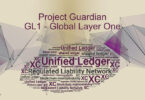At the ASEAN Energy Business Forum (AEBF), Singapore’s SP Group launched one of the world’s first blockchain-powered renewable energy certificate (REC) marketplace.
What are RECs?
When a renewable energy producer, whether it’s a huge firm or a single household, sends 1000 kWh of energy into the power grid they receive one REC. Hence a REC represents 1000 kWh of energy, and the producer can sell the certificate to individuals and firms. The REC is trackable so governments can see how certificates spread and who owns them.
However, the renewable energy generated, whether through solar, wind, hydropower, or other means is not traceable. The power goes into the grid and hence becomes part of the energy pool. But the producer’s certificate represents the electricity generated.
Companies can buy and ‘retire’ (remove from circulation) RECs to prove to governments and consumers that they are abiding by any clean-power regulations and are environmentally friendly.
SP’s marketplace
The SP marketplace supports local, regional and international RECs which domestic and overseas buyers can access.
SP decided to implement a blockchain-based solution to offer an improved system compared to their competitors. The utility firm hopes that blockchain can furnish better security, integrity and traceability.
SP’s Chief Digital Officer, Samuel Tan, said, “Through blockchain technology, we enable companies to trade in renewable energy certificates conveniently, seamlessly and securely, helping them achieve greener business operations and meet their sustainability targets.”
Both property developer CDL and DBS Bank have already signed on as REC buyers. While renewable energy producers Cleantech Solar Asia and LYS Energy Solutions have agreed to place their RECs on SP’s marketplace.
Mike Power, COO of Technology and Operations, at DBS added: “As Southeast Asia’s largest bank, we recognize the leadership role we can play in promoting sustainable development, including supporting innovations in renewable energy. SP Group’s blockchain REC platform will make it more economically effective for organizations and will catalyze the transition towards a low carbon economy. “
The project will also help Singapore achieve its low carbon targets as part of the Paris COP-21 climate change agreement.
Numerous utilities around the world are exploring blockchain. Nevada uses PECs which are similar to RECs and they’re exploring a blockchain replacement. GE Power announced it was joining an international study into blockchain for electricity. In July four New York Utilities banded together to explore blockchain.






